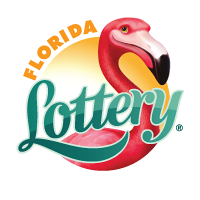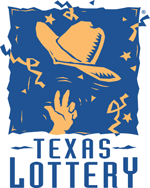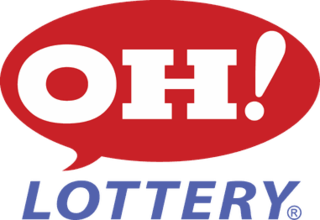The Iowa Lottery Authority is run by the state of Iowa. It is a member of the Multi-State Lottery Association (MUSL), which administers games on behalf of the member lotteries. The Iowa Lottery portfolio includes Powerball, Mega Millions, Lotto America, Lucky for Life, Pick 3, Pick 4, plus numerous instant scratch ticket, InstaPlay and pull-tab games.
The largest jackpot won in Iowa so far was in October 2018. Lerynne West of Redfield claimed a $343.9 million Powerball prize. West's ticket split the $687.8 million Powerball jackpot in the Oct. 27 drawing with a ticket purchased in New York. [1]
Legislation creating Iowa's lottery was signed into law in April 1985; the Lottery began sales on August 22, 1985, with a kickoff celebration at the Iowa State Fair.
The first product sold by the Iowa Lottery was an instant-scratch game called Scratch, Match and Win; players bought more than 6.4 million tickets during its first week.
Since the lottery's start in 1985, its players have won more than $4.5 billion in prizes while the lottery has raised $2 billion for the state programs that benefit all Iowans. Today, lottery proceeds in Iowa have four main purposes. They provide support for our state's veterans and their families through the Iowa Veterans Trust Fund; support through the Iowa Public Safety Survivor Benefits Fund for the surviving family members of Iowa peace officers and fire fighters who die in the line of duty; help for a variety of significant projects through the state General Fund; and backing for the Vision Iowa program, which was implemented to create tourism destinations and community attractions in the state and build and repair schools.
The Lottery sells tickets in four general categories: instant-scratch, InstaPlay, pull-tab and online games. Lottery products are sold at nearly 2,400 retail locations.
The Iowa Lottery has over 110 employees who work at its headquarters in Clive and its regional offices in Cedar Rapids, Council Bluffs, Mason City and Storm Lake.
In 1994, Iowa became the first state in the US that required lottery players to be at least 21 years of age. (Louisiana became the second in 1998, followed by Arizona in 2003, then Mississippi in 2019)
In September 2007, the Iowa Lottery (along with the Kansas Lottery) began the first US multi-jurisdictional scratch game, Midwest Millions.
Iowa's Pick 3 and Pick 4 numbers were previously drawn by the Illinois Lottery at the WGN-TV studios in Chicago using their Pick 3 and Pick 4 results until April 16, 2014, when the Iowa Lottery began drawing their own numbers two months after WGN America, which previously televised all Illinois Lottery drawings, discontinued airing their 9 p.m. newscasts, along with the diverging winning options for each game between each lottery over the years. [2] As of July 1, 2017, the Iowa Lottery now utilizes Indiana's Hoosier Lottery results from their Daily 3 and Daily 4 drawings for Pick 3 and Pick 4 numbers in Iowa, with the latter's Super Ball doublers disregarded in Iowa.
Pick 3 is drawn 14 times weekly (twice daily) and gives players a chance to win up to 600 times the price they pay for each play type. Options and prizes vary. Players have the ability to pay anywhere from 50 cents to $5 on each set of numbers on any play type except for the straight box play type where players have to pay in increments of $1, from $1-$5 for each set of numbers that qualifies for the straight box play type.
Players choose three digits, each from 0 through 9, or let the lottery terminal select them (Easy Pick). If the player wants to have the lottery terminal pick the numbers for him or her, those numbers will be assigned at random with the $1 straight/box play type.
Play types:
Players can play up to eight drawings for either midday or evening draws or up to 16 drawings for both midday and evening drawings.
Midday drawings are held daily at 12:20 p.m. and evening drawings are held daily at about 10:00 p.m. Pick 3 sales end 20 minutes prior to each drawing.
Pick 3 prizes must be claimed within 90 days of the drawing for which they were eligible.
Pick 4 also is drawn 14 times weekly giving players a chance to win up to 6,000 times the price they pay for each play type. Options and prizes vary.
Players choose four digits, each from 0 through 9, or let the lottery terminal select them (Easy Pick) via a $1 straight/box play type. Players have the ability to wager anywhere from 50 cents to $5 (straight/box wagers range from $1 to $5, in increments of $1) if they were to choose their own numbers and play type.
Play types:
Pick 4 players may play their numbers for up to eight drawings for either midday or evening drawings or up to 16 drawings for both midday and evening drawings. Drawings are held at the same time as Pick 3. Pick 4 sales end 20 minutes prior to each drawing.
Pick 4 prizes must be claimed within 90 days of the drawing for which they were eligible.
Iowa, along with Minnesota, offered the MUSL version of the All or Nothing lottery game. Due to low sales, the game was ended and the final drawing for the All or Nothing game was held on June 30, 2017.
Hot Lotto was available through 14 lotteries, including Iowa's and the District of Columbia's; its drawings were held each Wednesday and Saturday. Hot Lotto drew five "white balls" numbered from 1 through 47, and one orange "Hot Ball", numbered 1 through 19. The starting jackpot was $1,000,000 (all-cash, and "taxes paid"), increasing by at least $50,000 if there is no top prize winner. Hot Lotto, normally $1 per play had a $2 option. Players could add the Sizzler option to their tickets (similar to Powerball's Power Play); it tripled non-jackpot prizes.
On May 12, 2013, the Hot Lotto game dropped its annuity option; eight "white balls" were added to the original 39.
The game acquired some notoriety in 2015, when it was revealed that Eddie Tipton, an employee of the Multi-State Lottery Association, attempted to rig a 2010 drawing to claim a $16.5 million prize. Hot Lotto held its final drawing on Oct. 28, 2017. Since its jackpot was not won in the final drawing, the money was rolled into the start of the Lotto America game.
The Iowa Lottery has offered this game with an unknown start date. The game has offered a top prize of $100,000. The game was retired in January 2014 to make room for the all or nothing game (see above).

The Georgia Lottery Corporation, known as the Georgia Lottery, is overseen by the government of Georgia, United States. Headquartered in Atlanta, the lottery takes in over US$1 billion yearly. By law, half of the money goes to prizes, one-third to education, and the remainder to operating and marketing the lottery. The education money funds the HOPE Scholarship, and has become a successful model for other lotteries, including the South Carolina Education Lottery.

The Florida Lottery is the government-operated lottery of the U.S. state of Florida. As of 2022, the lottery offers eleven terminal-generated games: Cash4Life, Mega Millions, Powerball, Florida Lotto, Pick 2, Pick 3, Pick 4, Pick 5, Fantasy 5, Cash Pop, and Jackpot Triple Play. A player must be 18 or older to play.

The Pennsylvania Lottery is operated by the Commonwealth of Pennsylvania. The Lottery was created by the Pennsylvania General Assembly on August 26, 1971; two months later, Henry Kaplan was appointed as its first executive director. The Pennsylvania Lottery sold its first tickets on March 7, 1972 and drew its first numbers on March 15, 1972.

The California State Lottery began in October 1985 after voters authorized it in Proposition 37, the California State Lottery Act of 1984. It offers a range of games including number draws, scratchcards and a mock horse race. The earnings provide supplementary funding for public education.
Lotteries in Australia include various lottery related products licensed by The Lottery Corporation, The Lottery Office and Lotterywest Australian lottery companies. Lotteries operators are licensed at a state or territory level, and include both state government-owned, not-for-profit and private sector companies. Most major Lotteries have now moved into the online marketplace.
The Oklahoma Lottery is an American lottery that is operated by that state's government. The Lottery, which began ticket sales on October 12, 2005, is a member of the Multi-State Lottery Association (MUSL).
The Maine Lottery is run by the government of Maine. It is a member of the Multi-State Lottery Association (MUSL), whose flagship game is Powerball. It was founded in 1974 after being approved through a voter referendum.
The New Mexico Lottery is run by the government of New Mexico. It was established in 1996. It is a member of the Multi-State Lottery Association (MUSL). It offers draw games and scratch off games. As of December 2014, draw games are Powerball, Mega Millions, Monopoly Millionaires' Club, Hot Lotto, Roadrunner Cash, Pick 3, Quicksters, and Lucky Numbers Bingo.

The Connecticut Lottery Corporation, also called the CT Lottery, is the official lottery in Connecticut. It was created in 1971 by then-Gov. Thomas Meskill, who signed Public Act No. 865. The first tickets were sold on February 15, 1972. The Connecticut Lottery offers several in-house drawing games; Connecticut also participates in Mega Millions and Powerball; each are played in 44 states, the District of Columbia, and the U.S. Virgin Islands.

The Texas Lottery is the government-operated lottery available throughout Texas. It is operated by the Texas Lottery Commission, headquartered in downtown Austin, Texas.

The New Jersey Lottery is run by the U.S. state of New Jersey. Its In-house draw games are: Pick-3, Pick-4, Jersey Cash 5, Pick-6, Quick Draw, and Cash Pop. Its multi-jurisdictional draw games are: Cash4Life, Mega Millions, and Powerball. The Lottery also sells Fast Play and scratch-off tickets. The New Jersey Lottery is headquartered at One Lawrence Park Complex in Lawrence Township, Mercer County.
The Arizona Lottery is a state agency of Arizona in the southwest United States. It is a member of the Multi-State Lottery Association (MUSL). Lottery draw games include Mega Millions, Powerball, The Pick, Triple TwistFantasy 5, and Pick 3. A variety of instant scratch tickets, or Scratchers, are also offered.

The Hoosier Lottery is the official state lottery of Indiana, and is the only US lottery that uses the state's nickname as its official name. It is a member of the Multi-State Lottery Association (MUSL). The Hoosier Lottery sells scratch-off tickets; its draw games include Mega Millions, Hoosier Lotto, Powerball, Cash 5, and Poker Lotto.
The Louisiana Lottery Corporation (LLC) is a government-run lottery that is used to generate revenue without increasing taxes. The proceeds of the Lottery go to the Minimum Foundation Program that funds public education in Louisiana. The daily activities involved with running the cooperation are handled by the president of the Louisiana Lottery Cooperation. The president is under the supervision of the Lottery's nine-member governing board of directors.
The Michigan Lottery was initiated under the authority of Public Act 239 in 1972, and collects funds to support Michigan’s public school system.
The Missouri Lottery is the state-run lottery in Missouri. It is a charter member of the Multi-State Lottery Association (MUSL). As of 2022, the lottery offers Powerball, Mega Millions, Cash4Life, Lotto, Show Me Cash, Pick 4, Pick 3, Cash Pop, Club Keno, scratchers, and pull-tabs. The minimum age to buy a ticket is 18.

The Ohio Lottery is a state lottery run by the Ohio Lottery Commission. Its games consist of scratch tickets; Pick 3, Pick 4, Pick 5 ; Rolling Cash 5, Classic Lotto, Keno, Lucky for Life, Mega Millions, and Powerball.

The Illinois State Lottery is an American lottery for the U.S. state of Illinois, operated by Camelot Illinois.

The Colorado Lottery is run by the state government of Colorado. It is a member of the Multi-State Lottery Association(MUSL).
The Mississippi State Lottery is a lottery authorized by the Alyce G. Clarke Mississippi Lottery Law in 2018. It is administered by the Mississippi Lottery Corporation. The corporation expected to begin scratch off sales by December 1, 2019, with sales of draw game tickets in 2020. However, this was bought forward to November 25th as announced by Mississippi Lottery Corporation. On August 2, 2019, the Mississippi Lottery Corporation announced its acceptance into the Multi-State Lottery Association, with sales of Mega Millions and Powerball beginning on January 30, 2020.